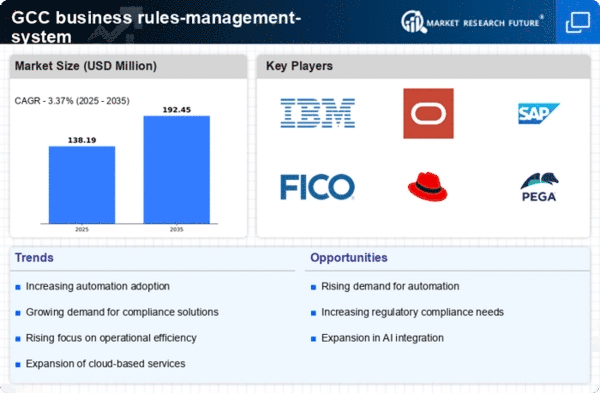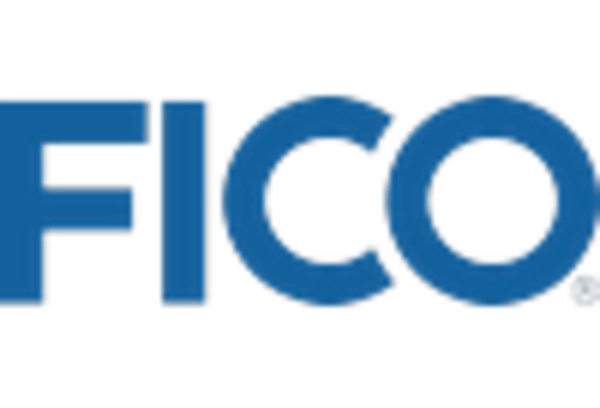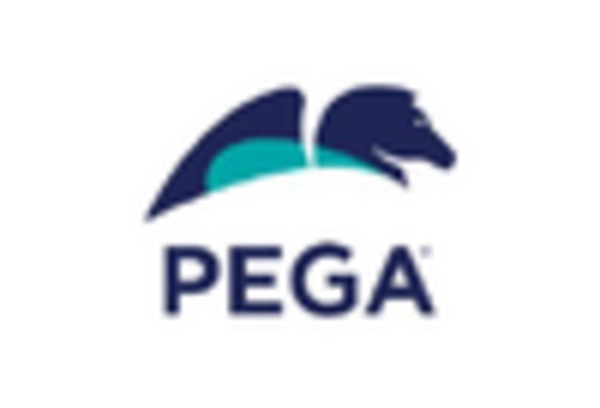Enhanced Operational Efficiency
Operational efficiency remains a pivotal driver for the business rules-management-system market in the GCC. Organizations are increasingly recognizing the value of automating decision-making processes to streamline operations and reduce costs. By implementing business rules management systems, companies can optimize workflows, minimize manual interventions, and enhance productivity. This is particularly relevant in sectors such as telecommunications and logistics, where efficiency gains can lead to significant cost savings. The market is expected to witness a growth rate of around 12% annually as businesses seek to leverage technology to improve their operational frameworks. The integration of these systems allows for real-time adjustments to business rules, ensuring that organizations remain agile and responsive to market changes.
Growing Focus on Customer Experience
In the competitive landscape of the GCC, enhancing customer experience is becoming increasingly vital, thereby driving the business rules-management-system market. Organizations are leveraging these systems to create personalized customer interactions and improve service delivery. By automating business rules related to customer engagement, companies can respond more swiftly to customer inquiries and tailor their offerings to meet specific needs. This focus on customer-centric strategies is projected to contribute to a market growth of approximately 10% over the next few years. The ability to analyze customer data and adjust business rules accordingly enables organizations to foster loyalty and satisfaction, which are essential for long-term success.
Integration with Emerging Technologies
The integration of emerging technologies is a significant catalyst for the business rules-management-system market in the GCC. As organizations adopt advanced technologies such as IoT and blockchain, the need for sophisticated business rules management systems becomes apparent. These systems facilitate the seamless integration of various technologies, allowing for enhanced data processing and decision-making capabilities. The market is anticipated to grow by around 14% as businesses seek to harness the potential of these technologies. By implementing business rules management systems, organizations can ensure that their operations are aligned with the latest technological advancements, thereby maintaining a competitive edge in an evolving market landscape.
Rising Demand for Regulatory Compliance
The business rules-management-system market is experiencing a notable surge in demand driven by the increasing need for regulatory compliance across various sectors in the GCC. Organizations are compelled to adhere to stringent regulations, which necessitates the implementation of robust business rules management systems. This trend is particularly evident in industries such as finance and healthcare, where compliance failures can result in substantial penalties. As a result, The market is projected to grow at a CAGR of approximately 15% over the next five years, reflecting the critical role that business rules will play in ensuring adherence to legal standards. Companies are investing in these systems to automate compliance processes, thereby reducing the risk of human error and enhancing operational efficiency.
Increased Investment in Digital Transformation
Ongoing digital transformation initiatives in the GCC significantly influence the business rules-management-system market. Organizations are allocating substantial budgets towards digital solutions to enhance their operational capabilities and customer engagement. This trend is evident in sectors such as retail and banking, where digital transformation is reshaping traditional business models. The market is projected to expand at a CAGR of approximately 11% as companies recognize the importance of integrating business rules management systems into their digital strategies. These systems enable organizations to automate processes, improve decision-making, and adapt to changing market conditions, thereby driving overall business growth.
















